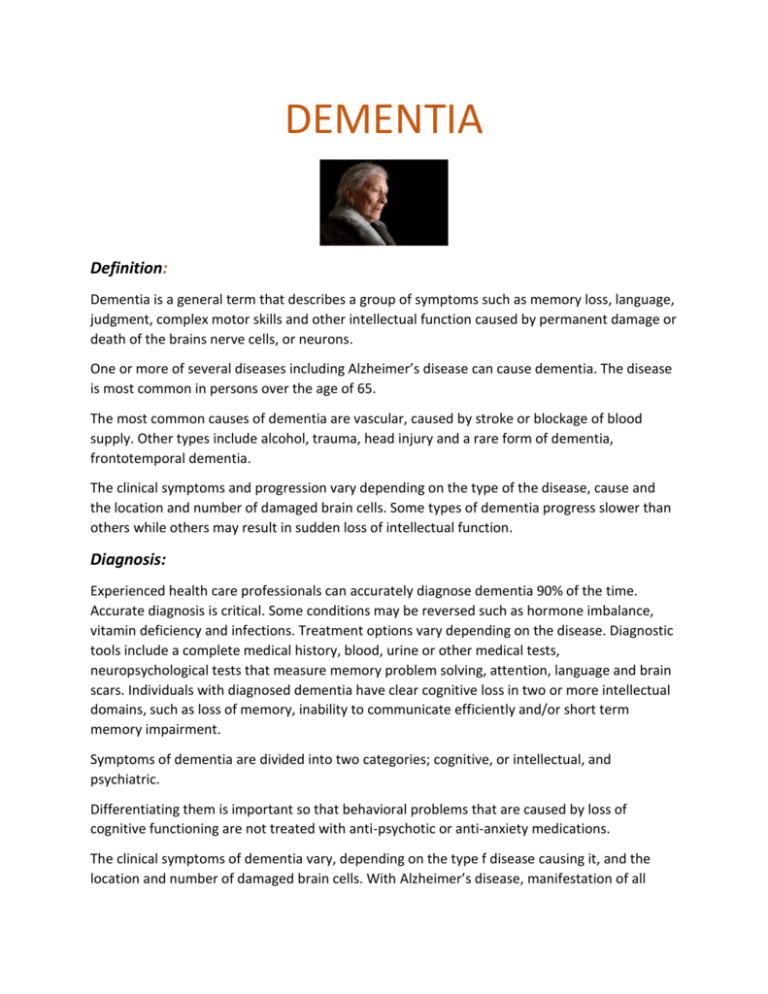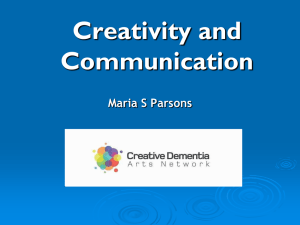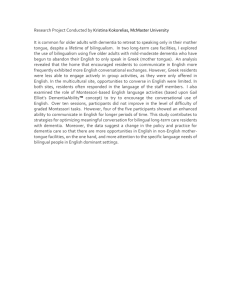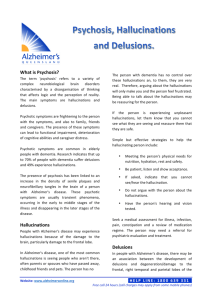Definition - A Better Solution
advertisement

DEMENTIA Definition: Dementia is a general term that describes a group of symptoms such as memory loss, language, judgment, complex motor skills and other intellectual function caused by permanent damage or death of the brains nerve cells, or neurons. One or more of several diseases including Alzheimer’s disease can cause dementia. The disease is most common in persons over the age of 65. The most common causes of dementia are vascular, caused by stroke or blockage of blood supply. Other types include alcohol, trauma, head injury and a rare form of dementia, frontotemporal dementia. The clinical symptoms and progression vary depending on the type of the disease, cause and the location and number of damaged brain cells. Some types of dementia progress slower than others while others may result in sudden loss of intellectual function. Diagnosis: Experienced health care professionals can accurately diagnose dementia 90% of the time. Accurate diagnosis is critical. Some conditions may be reversed such as hormone imbalance, vitamin deficiency and infections. Treatment options vary depending on the disease. Diagnostic tools include a complete medical history, blood, urine or other medical tests, neuropsychological tests that measure memory problem solving, attention, language and brain scars. Individuals with diagnosed dementia have clear cognitive loss in two or more intellectual domains, such as loss of memory, inability to communicate efficiently and/or short term memory impairment. Symptoms of dementia are divided into two categories; cognitive, or intellectual, and psychiatric. Differentiating them is important so that behavioral problems that are caused by loss of cognitive functioning are not treated with anti-psychotic or anti-anxiety medications. The clinical symptoms of dementia vary, depending on the type f disease causing it, and the location and number of damaged brain cells. With Alzheimer’s disease, manifestation of all these symptoms is quite probable; with other types of dementia, it is possible to have all or some of the symptoms. Warning signs: Symptoms: Cognitive, or intellectual, symptoms are Amnesia, Aphasia, Apraxia and Agnosia Trouble with new memories Amnesia: loss of memory or the ability to Trouble finding words remember facts or events Relying on memory helpers Aphasia: the inability to communicate Struggling to complete familiar actions effectively. Confusion about time, place or people Apraxia: inability to do pre-programed Misplacing familiar objects motor tasks, or perform activities Onset of new depression or irritability of daily living such as brushing teeth Making bad decisions and dressing. Personality changes Agnosia: the inability to correctly interpret Loss of interest signals from their five senses Seeing or hearing things Expressing false beliefs Major psychiatric symptoms include; personality changes, depression, and hallucinations and delusions. Personality Changes: signs include apathy, Irritability, withdrawal and isolation Psychotic symptoms: include hallucinations & delusions Hallucinations: usually auditory and /or visual. Sensory impairments such as hearing loss or poor eyesight tend to increase persons with dementia. Common reactions are feelings of fear, anxiety and paranoia, as well as agitation, aggression and verbal outbursts Individuals with psychiatric symptoms tend to exhibit more behavioral problems than those without these symptoms. It is important to recognize these symptoms so that appropriate medications can be prescribed and safety precautions can be taken. Psychotic symptoms can often be reduced through carefully supervised use of medications. Talk to your Doctor, neurologist or geriatric, psychiatrist about these symptoms










